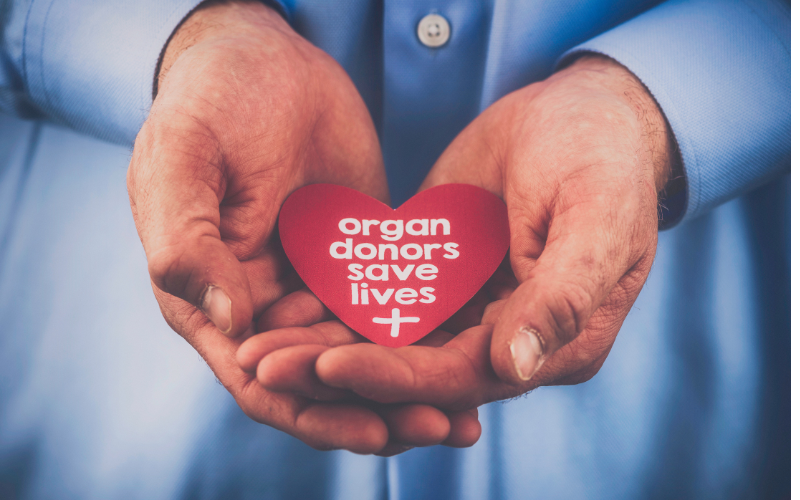Becoming an Organ Donor & Donating Your Body to Science

Organ donation is when you decide to give an organ to save or transform the life of someone else. You can donate some organs while you are alive, but most organ and tissue donations come from people who have died.
There are very few conditions where organ donation is ruled out completely. You can read more about those conditions on the NHS organ donation website.
Opt in/opt out
All areas of the UK now use an “opt out” system which means that it will be assumed that you are a potential donor unless you have opted out and recorded that decision on the NHS Organ Donor Register. There are a few exceptions to this and your family will still be consulted for the final decision. Clinicians will never proceed with a donation if your family objects. That’s why it’s really important to discuss your decision with them now.
You can record your decision online on the NHS organ donation website. Or you can call 0300 123 23 23 (note, you may be charged at the local rate depending on your provider). You can also amend your decision through the website or via telephone.
This will give your loved ones the certainty they need to support your choice and mean that they are more likely to fulfill your wishes.
Faith and beliefs
None of the major world faiths are against organ donation, though scholars may vary between different traditions. Some faith and belief groups positively encourage it as an act of giving. There's specific information on the NHS organ donation website about faith and beliefs. You can be sure that if the situation arises that you could donate organs, your beliefs will be respected.
What happens when you die?
It is only possible to donate solid organs (eg. heart, liver, kidneys) if you die in particular circumstances, in hospital, usually in intensive care. This is because organs start to deteriorate soon after death. If clinicians think that it’s possible that you could be a donor, they will check the register first to see if you have opted out. They will then look at your notes in case there are medical reasons why your organs would not be suitable for transplant. lastly, they will talk to your family and ask for their consent.
Tissue, such as bone or tendons, on the other hand, can be donated by almost anyone and can be taken up to 24-48 hours after death.
Donating your body to science
It is possible to donate your whole body after you die and this does not have the same urgency as donating individual organs. Your body could be used for one of several purposes including teaching medical students how the body is structured and functions; for the development of surgical techniques or procedures; or other scientific studies. You will need to arrange this through a legal, written agreement with a local medical school. The Human Tissue Authority has a list of institutions with their contact details. When you make contact they will inform you of any restrictions they have, how the legal agreement works and what your next of kin will need to do when you die.
It may be helpful to discuss your decision with family and friends but you should certainly tell them, and your GP, once you have signed the relevant consent forms with your chosen medical school.
Donor bodies may be kept for two to three years after which the institution will arrange for cremation. However, most families will hold a thanksgiving or celebration of life service at the usual time of a funeral.
It is possible to both register as an organ donor and arrange to leave your body to science. If, at the time of your death, your organs or tissue are used for transplant, it’s unlikely that your body would be suitable for research.
Donating your brain to research
It is also possible to donate your brain through the UK’s network of brain banks. This works in a similar way to donating your body and more information can be found on the Brain Bank Network website.
Donated brain tissue is used to increase understanding of, and develop treatments for, a wide range of neurological conditions including Alzheimer’s disease, motor neuron disease, multiple sclerosis (MS) and psychiatric conditions such as depression and schizophrenia.
Support speaking to someone about organ donation
There's some great advice about talking to loved ones about organ donation on the NHS organ donation website
Page last updated: November 2023.

